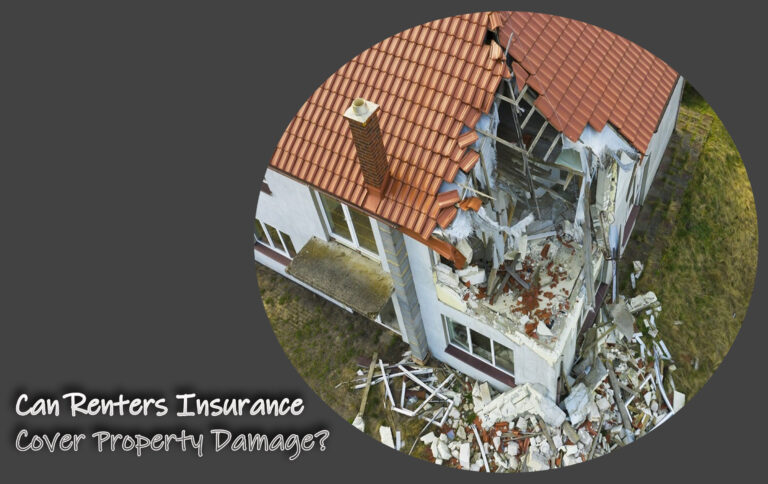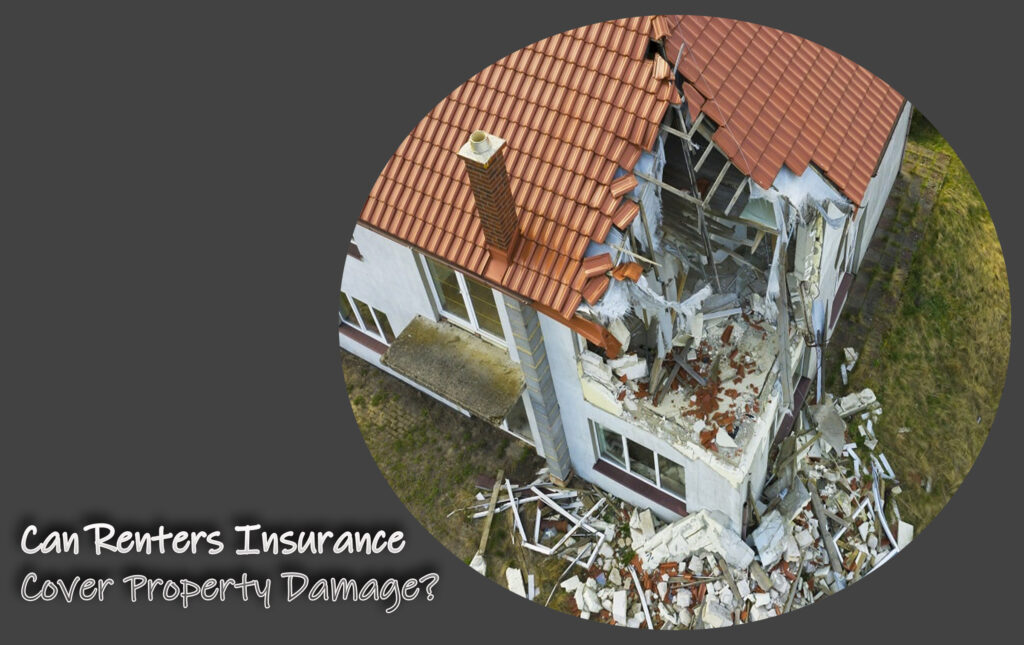
Can renters insurance cover property damage? Renters insurance is often times an overlooked aspect of financial protection for tenants. Many renters assume that since they don’t own the property they live in, the getting an insurance isn’t necessary.

However, renters insurance plays an important role in protecting your personal belongings, offering liability coverage. And sometimes even covering costs if your rental becomes uninhabitable.
Furthermore, property damage can come from various sources: a burst pipe, fire, theft, vandalism, or even an accidental mishap caused by the renter themselves.
Knowing what is and isn’t covered can help renters make informed decisions, avoid disputes with landlords, and secure peace of mind.
What Does Renters Insurance Cover?
Firstly, the Renters insurance is designed to protect tenants, not the physical building itself, which is the landlord’s responsibility. However, within the walls of your rented space, your possessions and your liability are protected.
A renters insurance policy generally includes three key areas of coverage:
- Personal Property Coverage: This protects your belongings from disasters like fire, theft, vandalism, and certain types of water damage.
- Liability Protection: If someone is injured in your rented home, or you accidentally cause damage to someone else’s property, this is where the liability coverage steps in.
- Additional Living Expenses (ALE): If your rental unit becomes uninhabitable due to a covered event (like a fire), ALE coverage pays for temporary living arrangements.
Thus, understanding these categories is the foundation for identifying if and how property damage is covered.
When Renters Insurance Covers Property Damage
Renters insurance actually covers some types of property damage, especially when it affects the renter’s personal belongings or involves the renter’s liability. However, this coverage depends heavily on the cause of the damage.
Here are common scenarios where renters insurance may cover property damage:
- If a fire breaks out and damages your furniture, electronics, or clothing, the renters insurance covers the replacement or repair costs. Even smoke damage that affects your items can be claimed.
- Water damage from sudden and accidental incidents like a burst pipe or an overflowing washing machine is usually covered. However, flood damage from natural disasters typically requires separate flood insurance.
- If someone breaks into your rental and steals or damages your property, renters insurance can reimburse you for the losses.
- If a windstorm breaks your window and rain damages your possessions inside, renters insurance can cover the cost of the damaged belongings.
- If you happen to accidentally break a neighbor’s window or damage the landlord’s fixtures, the liability coverage can step in to cover repair or replacement costs.
What Renters Insurance Does Not Cover
While renters insurance offers some form of quality protection, it does not cover every type of property damage. Let’s look at the exclusions in this insurance model:
- Any damage to the physical building, such as walls, roofing, or plumbing, is the landlord’s responsibility and not covered by renters insurance.
- If damage occurs because of your negligence (like leaving a candle unattended) or if it’s intentionally caused, your claim may be denied.
- Standard renters insurance does not cover damage from floods or earthquakes. On the other hand, there are some special policies or add-ons required for those events.
- Damage from termites, bed bugs, or rodents is generally not covered under renters insurance.
- Normal deterioration of personal belongings or the rental property is not covered.
How to File a Claim for Property Damage
Filing a claim with your renters insurance provider involves a few steps, and doing it correctly can improve your chances of approval.
- Take clear photos or videos of all damaged items. Make a list with details like purchase dates, costs, and receipts if available.
- Next, inform your insurer as soon as possible. Many companies have time limits on filing claims.
- Fill out claim forms with accurate and complete information. You should be really honest and precise to avoid delays or denials.
Lastly, the insurance company may send an adjuster to assess the damage. All you have to do is to cooperate fully and provide all necessary documentation.